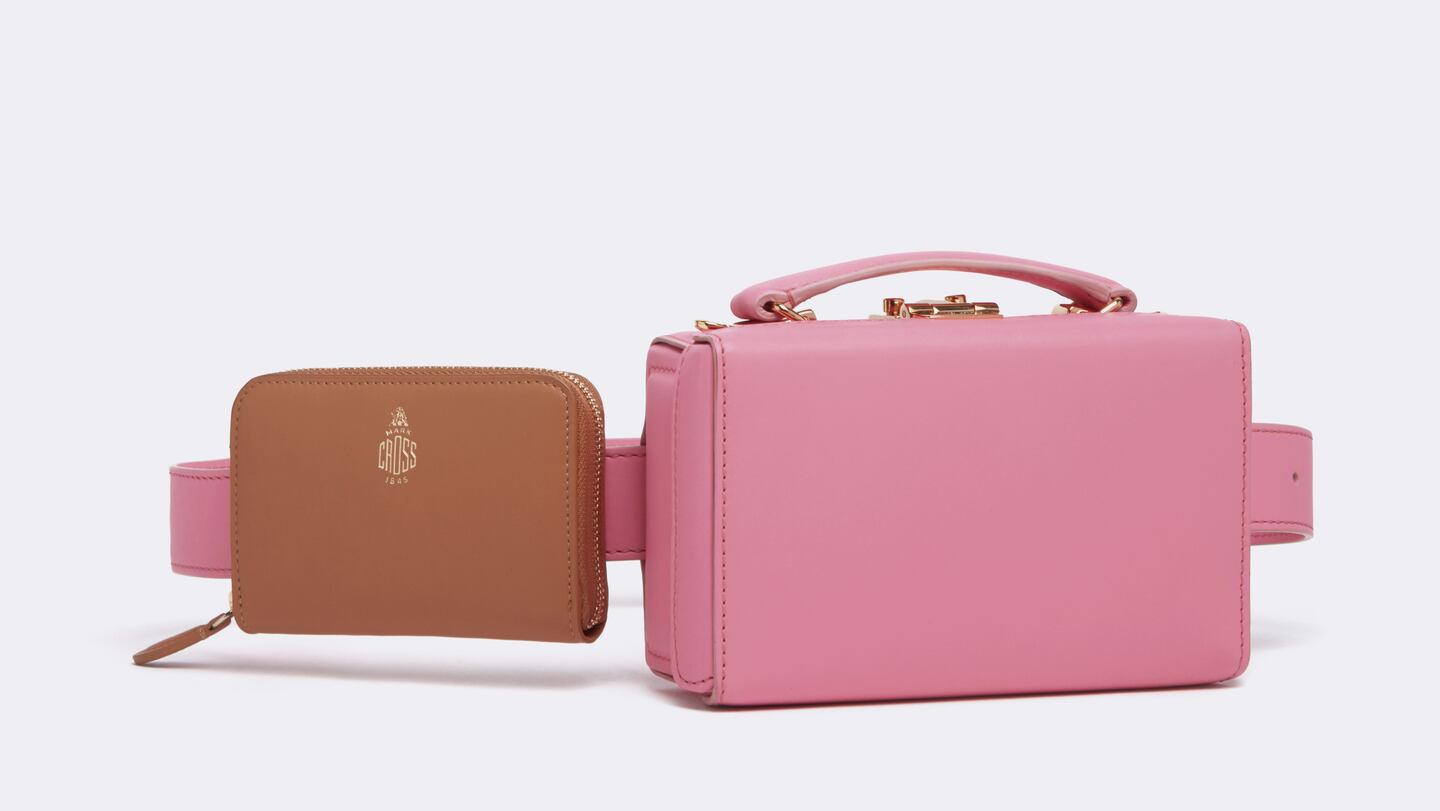
The Business of Fashion
Agenda-setting intelligence, analysis and advice for the global fashion community.

Agenda-setting intelligence, analysis and advice for the global fashion community.

NEW YORK, United States — Mark Cross’ box-shaped Grace bag has sped through the typical life cycle of an “it” bag since its 2014 relaunch, with blockbuster initial sales and an inevitable fade. Now, the American luxury brand sees a way to profit from fickle demand: embrace the resale market.
Starting this fall, consumers can bring in their pre-owned handbags to be authenticated and then sell them for cash or store credit. The products will then be sold on a new vintage storefront on the company’s website.
Mark Cross is one of the first luxury labels to offer secondhand products to its consumers. Resale is a part of new CEO Ulrik Garde Due’s plan to appeal to more consumers, a strategy that includes offering items at lower prices and opening stores.
Resale reached a global market size of $24 billion last year and is growing 21 times faster than retail at large. Retailers like H&M are piloting their own programs to sell secondhand clothing while The RealReal, a luxury digital consignment shop, became a public company on the Nasdaq exchange just last month. Its market capitalisation exceeds $2 billion. Neiman Marcus, meanwhile, acquired a minority stake in Fashionphile, a similar luxury resale website.
ADVERTISEMENT
Resellers like The RealReal, Rebag and Vestiaire Collective have been competing with one another for partnerships with brands, hoping to be the platform that sells vintage on behalf of labels and woo them with proprietary data on consumer behaviour. B2B startup Yerdle has set up white-labelled resale platforms for brands like Eileen Fisher and Patagonia.
Luxury labels, however, largely have yet to capitalise on resale. Chanel, in fact, is suing The RealReal, claiming that only the storied French house can guarantee the authenticity of a Chanel handbag and not any reseller.
Mark Cross will become one of the first luxury labels to offer secondhand products to its consumers.
The exception is Stella McCartney and now, Mark Cross.
Stella McCartney became the first major brand to promote resale by incentivising store credit in 2017. Working with The RealReal, the designer encouraged shoppers to sell their worn Stella McCartney garments on the platform and receive $100 in store credit to shop in Stella McCartney stores or online.
Stella McCartney pitches resale as another element of its sustainable mission. Mark Cross is looking for a second act after several previous efforts to achieve lasting success fell flat.

Ulrik Garde Due | Source: Courtesy
Mark Cross, founded in 1845 but became largely dormant in the 1990s, launched its first new collection in decades at Saks Fifth Avenue in 2010. It was priced between $500 and $900. Unhappy with the sales performance, then-CEO Neal Fox moved manufacturing to Italy and created a line priced at $2,500. For a while it worked: the Grace bag became a fashion week mainstay around the world and appeared on the shoulders of celebrities like Lady Gaga and Rihanna.
But over-reliance on its marquee product and a largely wholesale distribution channel eventually led to stagnation. Sales were flat in 2017 and 2018, with a revenue of about $10 million. Fox stepped down in November.
ADVERTISEMENT
Under Garde Due, Mark Cross is expanding product offerings to include more affordable canvas products, jewellery, smaller leather goods and men’s products. The brand is also expanding to new markets in Europe and Asia.
Later this year, Mark Cross will open its first flagship store since the 1970s on Madison Avenue in New York. With a retail location and an e-commerce relaunch, Garde Due hopes that direct-to-consumer will comprise up to 50 percent of sales from 11 percent today.
Plenty of ailing brands have made similar moves. The entry into resale takes Mark Cross into uncharted waters.
“Mark Cross lacked newness,” Garde Due said. “We need to tell our story in new innovative ways and continue to educate ourselves.”
The Future of Fashion Resale Report — BoF Insights
BoF’s definitive guide to fashion resale, covering the evolution of the market, its growth and upside, consumer behaviours and recommendations for crafting a data-driven resale strategy. To explore the full report click here.
The Future of Fashion Resale is the first in-depth analysis to be published by the BoF Insights Lab, a new data and analysis unit at The Business of Fashion providing business leaders with proprietary and data-driven research to navigate the fast-changing global fashion industry.
Related Articles:
[ Resellers Are Courting Shoppers Away From Brands. Can They Work Together Instead?Opens in new window ]
[ Mark Cross: The American Luxury Brand Revival That Almost Wasn’tOpens in new window ]
From analysis of the global fashion and beauty industries to career and personal advice, BoF’s founder and CEO, Imran Amed, will be answering your questions on Sunday, February 18, 2024 during London Fashion Week.
The State of Fashion 2024 breaks down the 10 themes that will define the industry in the year ahead.
Imran Amed reviews the most important fashion stories of the year and shares his predictions on what this means for the industry in 2024.
After three days of inspiring talks, guests closed out BoF’s gathering for big thinkers with a black tie gala followed by an intimate performance from Rita Ora — guest starring Billy Porter.